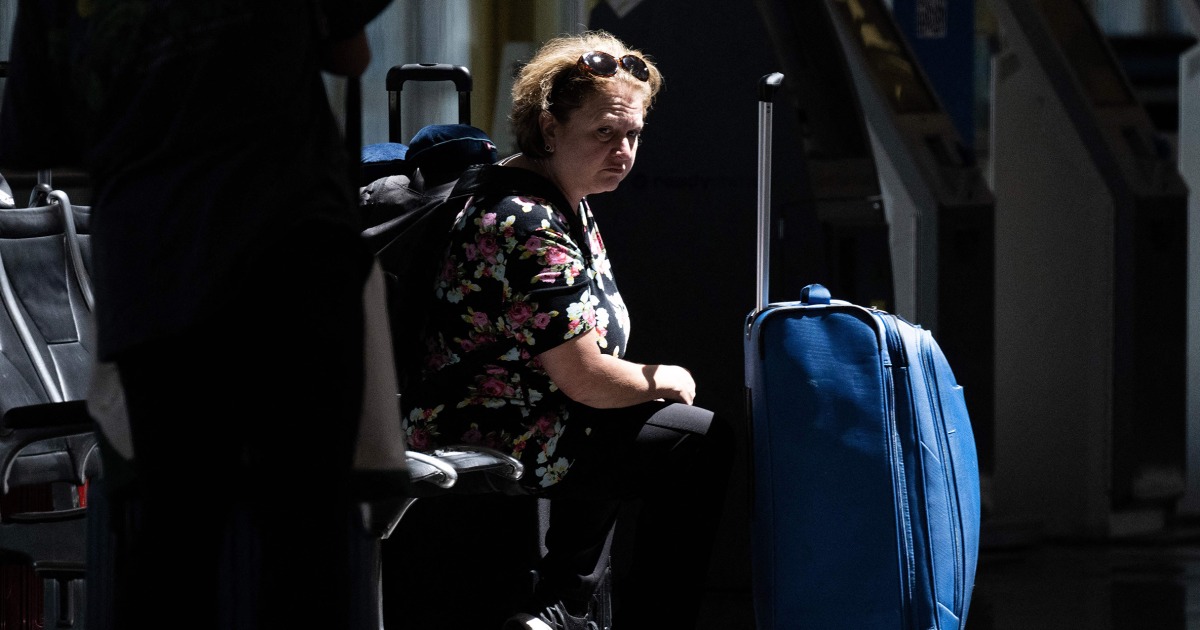WASHINGTON — Price transparency on airline tickets could be a thing of the past, as House Republicans push to roll back Obama-era rules that prohibit airlines from advertising anything but their all-in prices, including all required taxes and fees.
But Democrats and consumer watchdogs are sounding alarms, saying the change would be a gift to airlines, who could hide the true cost of an airfare behind links or fine print — and increase profits by getting consumers to spend more.
“This is a bad idea,” said John Breyault, vice president of public policy, telecommunications and fraud at the National Consumers League. “Price transparency makes it easier for consumers to comparison shop. … We don’t want to have to do algebra and advanced trigonometry to figure out what it costs.”
The Republican provision was tucked into a massive Federal Aviation Administration reauthorization package, one of very few bills considered a must-pass this Congress, by members of the House Transportation and Infrastructure Committee. It was amended, however, to leave some of the Obama-era rule intact — under the amendment, airlines would still be required to be open about any airline-imposed mandatory fees, but they would be allowed to strip out governmental taxes and fees from their advertised rates.
A spokesperson for Committee Chair Sam Graves, R-Mo., told NBC News that the provision would allow airlines the same freedom in advertising that other industries enjoy.
On Thursday, Reps. Alexandria Ocasio-Cortez, D-N.Y., Chris Deluzio, D-Pa., and Jan Schakowsky, D-Ill., penned a letter to their House colleagues, urging them to support Schakowsky’s amendment to strip the pricing reform out of the FAA bill before it goes to a full House vote next week. But they face major headwinds in getting the GOP-controlled House to include it.
“Consumers booking airline tickets deserve to know the full price of a ticket at the start of their transaction to avoid surprise fees and to easily comparison shop,” the three Democrats wrote. “The airline industry is using this must-pass legislation to unravel air travel price transparency laws that have been in place for the last decade.”
Airlines have been required to display the full cost of a fare ever since then-President Barack Obama issued a mandate, through a Department of Transportation rule, in 2012. And it appears to be wildly popular with consumers.
A poll conducted by YouGov this month found that 87% of U.S. adults said they support rules requiring airlines to display the total cost of a ticket up-front in advertising. That includes 83% of independents, 88% of Democrats and 90% of Republican respondents.
And when asked specifically about efforts to rollback price transparency, allowing airlines to advertise only their base ticket price, excluding taxes and mandatory fees, 67% of respondents opposed the idea.
President Joe Biden has made price transparency and combating hidden “junk fees” a top priority and has encouraged federal agencies to write new rules to pull back the curtain on hidden fees and to use their enforcement arms to go after companies employing bait-and-switch practices.
But the House appears poised to take the airline industry in the opposite direction.
The House’s FAA bill, which also includes provisions on airport and airplane modernization, pilot training, drone regulation and FAA funding, was approved by the House Transportation and Infrastructure Committee in a unanimous 63-0 vote after months of negotiations between Democrats and Republicans.
However, with other measures in the bill, the provision on pricing transparency largely flew under-the-radar.
One member of the committee, Rep. Donald Payne, D-N.J., attempted to kill an earlier version of the legislative language, but withdrew his amendment after a compromise amendment was offered. Rep. Dan Webster, R-Fla., ushered the alternative amendment through committee, prohibiting airlines from hiding their own fees, but allowing them to remove government taxes and fees from their prices.
Studies have found consumers spend more when the total cost of a purchase isn’t disclosed up-front.
“It’s a very simple explanation for why they’re doing it,” Breyault said. “It makes them money.”
“As you go through this process, you’re hitting sort of these psychological trip wires that make us knuckle under, because we think there’s a cost to be stopping this and going back and starting over again,” Breyault added.
A spokesperson for Airlines for America, an advocacy group representing major U.S. air carriers which has fought to kill the transparency law, told NBC News “this provision would provide clarity on the actual cost of a ticket versus the numerous government taxes and fees that are added.”
The group said the U.S. government collected approximately $20 billion in taxes on commercial aviation last year.
“The American people deserve transparency, and the government should not be able to hide its mandated fees as the base cost of airfare,” a spokesperson for the group said in a statement.
But the sellers of airline tickets, such as TripAdvisor, Expedia and Booking.com are on the other side of the debate.
“You can’t comparison shop on the checkout page,” said Laura Chadwick, president and CEO of the Travel Technology Association, which represents the online sellers. “It’s essential to put that information up front, the first place where consumers see the airfare.”
Rep. Rick Larson of Washington, the top Democrat on the House Transportation Committee, told the Associated Press that the bill was still a work-in-progress, but the changes to price transparency were “something we can live with.” His office declined an interview request.
The bill is scheduled for a House vote next week, when it’s expected to pass. It’s unclear if Ocasio-Cortez, Deluzio and Schakowsky will succeed in getting their amendment added to the package.
After House passage, the overall bill will be reconciled with the Senate’s yet-to-be-finalized FAA bill. The two chambers will need to work through their differences, likely this fall.
Two Senate Democratic staffers told NBC News that price transparency is on their radar, as well as other consumer protections that the House didn’t include in their FAA bill. That includes mandatory compensation for airline delays and requiring airlines to sit families together, for no additional charge.
“Travel is expensive,” Chadwick said. “We believe consumers should have the most information upfront so they can make effective decisions, comparison shop for the best value, and feel good about their purchases in the end.”













